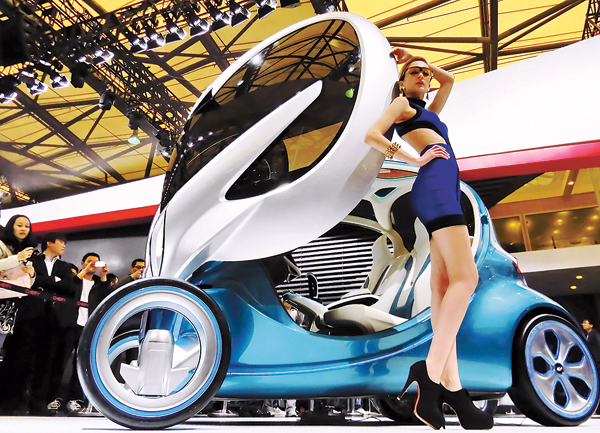China’s auto production and sales rose 7.4 percent and 7.9 percent year on year, respectively, in the first seven months of this year, posting steady growth, according to an official from the Ministry of Industry and Information Technology (MIIT).
Addressing a press conference on Tuesday, MIIT official Wang Weiming said China is striving to increase its annual automobile sales by 3 percent to 27 million in 2023.
Wang added that it is necessary to strengthen departmental coordination and create policy synergy to stabilize and expand the consumption of new energy vehicles and petrol vehicles.
However, growth challenges persist in the auto industry, with mounting global uncertainties and the continued triple pressure of domestic demand contraction, supply shocks and weakening expectations, the official noted, adding that the task of stabilizing the growth of the industry is arduous.
China’s industrial authorities on Saturday unveiled a plan to maintain stable growth of the country’s machinery industry in 2023-2024. The plan, jointly released by the MIIT and six other government departments, mainly focuses on 11 sectors, including machine tools, agricultural machinery and construction machinery.
China’s economic growth to 2050 will be a story of slowing but sustained expansion, as the country transitions from a manufacturing powerhouse to a knowledge-based economy
Shayne Heffernan
China expects the industry’s operating revenue to reach 8.1 trillion yuan (about 1.13 trillion U.S. dollars) by 2024, according to the plan.
Efforts will be made to expand demand, promote the intelligent transformation of manufacturing, improve the quality of supply and make policy implementation more targeted, the plan stated.
The automotive industry is a major contributor to the Chinese economy. In 2022, the automotive industry accounted for about 10% of China’s GDP. The industry also employs millions of people and supports a wide range of other industries, such as suppliers, logistics, and retail.
China is the world’s largest producer of automobiles. In 2022, China produced over 26 million vehicles, accounting for about 30% of global production. The Chinese auto industry is dominated by domestic automakers, such as SAIC Motor, FAW Group, and Dongfeng Motor. However, foreign automakers, such as Volkswagen, Toyota, and General Motors, also have a significant presence in China.
The Chinese auto industry is closely linked to the Chinese economy. When the economy is doing well, auto sales are strong. Conversely, when the economy is weak, auto sales tend to decline.
In recent years, the Chinese auto industry has been facing a number of challenges, including:
- Rising fuel prices: Rising fuel prices have made it more expensive to own and operate a car in China. This has led to a decline in demand for gasoline-powered vehicles.
- Environmental regulations: China has strict environmental regulations that are designed to reduce air pollution. These regulations have made it more difficult and expensive for automakers to produce vehicles that meet the standards.
- Competition from electric vehicles: Electric vehicles are becoming increasingly popular in China. This is due to a number of factors, including government subsidies, tax breaks, and the availability of charging infrastructure.
Despite these challenges, the Chinese auto industry is expected to continue to grow in the coming years. This is due to a number of factors, including:
- Growing middle class: China’s middle class is growing rapidly. This is leading to an increase in demand for cars.
- Infrastructure investment: The Chinese government is investing heavily in infrastructure, such as roads and highways. This is making it easier for people to own and use cars.
- Government support: The Chinese government is supporting the development of the electric vehicle industry. This is helping to make electric vehicles more affordable and accessible to consumers.
Overall, the Chinese auto industry is a major contributor to the Chinese economy. The industry is expected to continue to grow in the coming years, despite the challenges it is facing.
Shayne Heffernan









